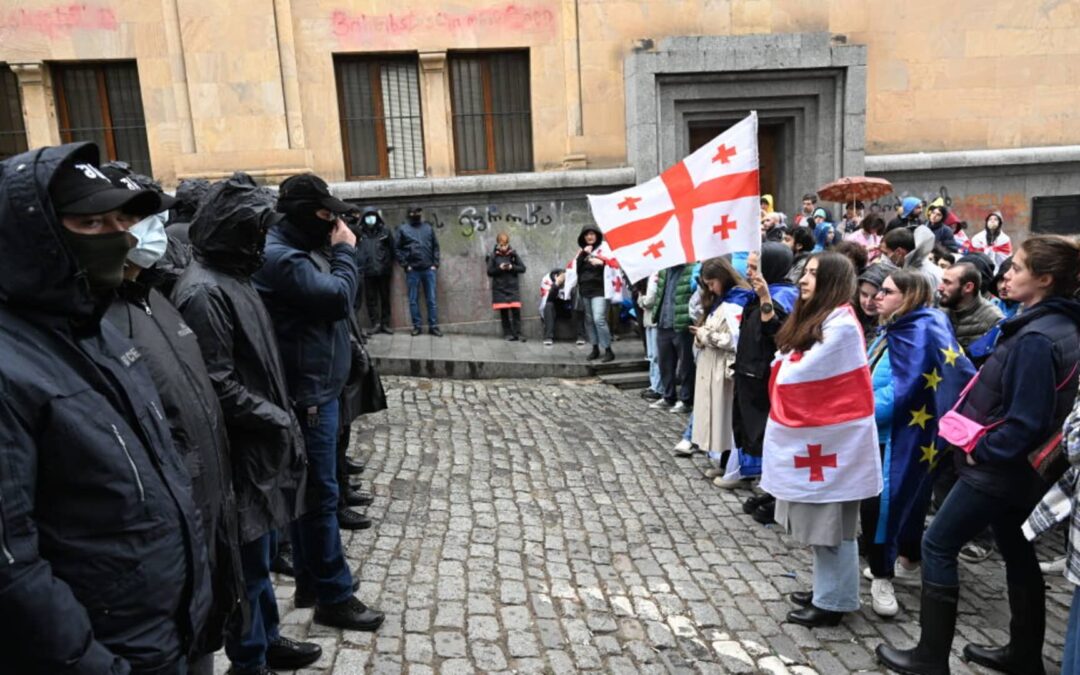Georgian demonstrators protesting the controversial “foreign influence” bill stand in front of law enforcement officers blocking an area near the parliament building in Tbilisi on May 14, 2024.
Vano Shlamov | Afp | Getty Images
Georgian lawmakers on Tuesday passed a highly controversial “Kremlin-style” law on foreign influence, despite massive protests in the country and repeated warnings from the U.S. and European Union.
Members of the Georgian Parliament physically came to blows as lawmakers held the third and final reading of the so-called “foreign agents” bill, before ultimately approving the legislation.
Of the country’s 150-member law-making body, 84 members voted in favor, with 30 voting against.
The ruling Georgian Dream party has insisted the legislation is necessary, despite some of the largest demonstrations the country has seen since declaring independence from the Soviet Union more than 30 years ago.
The foreign influence bill calls for media outlets, nonprofits and other nongovernmental organizations to register as “pursuing the interests of a foreign power” if they receive more than 20% of their funding from abroad.
Georgian President Salome Zourabichvili has previously vowed to veto the bill. The parliament, however, can override her veto by holding an additional vote.
Russia, which occupies about 20% of Georgia’s internationally recognized territory, has used similar legislation to crack down on independent news media and activists critical of the Kremlin.
The country’s opposition lawmakers have denounced the legislation, sometimes referred to as the “Russian law.” Critics say the bill could jeopardize Georgia’s chances of joining the European Union and push the country back into Russia’s orbit.
U.S., EU warnings
Speaking ahead of Tuesday’s vote, White House national security advisor Jake Sullivan said the U.S. was “deeply alarmed” about democratic backsliding in the country.
“Georgian Parliamentarians face a critical choice – whether to support the Georgian people’s EuroAtlantic aspirations or pass a Kremlin-style foreign agents’ law that runs counter to democratic values,” Sullivan said Saturday via social media platform X.
Separately, European Commission President Ursula von der Leyen said the EU had “clearly expressed its concerns” regarding the proposed law and condemned violence in the streets of Tbilisi earlier this month.
“The Georgian people want a European future for their country. In recognition of these aspirations, the European Council in December gave Georgia candidate status and set out a clear path to the opening of accession negotiations,” Von der Leyen said in a statement on May 1.
“We expect the Georgian government to take swift action on the measures they have committed to take as a candidate country. Georgia is at a crossroads. It should stay the course on the road to Europe,” she added.









